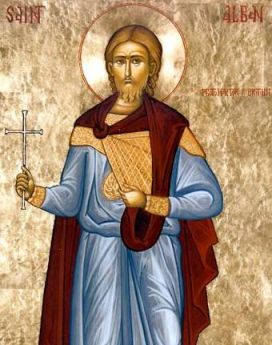The Church has hi-jacked the term 'saint'

I am not a Roman Catholic and I have no desire to bash other believers. And in contrast to the BBC's David Willey I have never met a pope. But I must admit I admired both Pope John XXIII and John Paul II. I found the former's warm personality endearing and his impact on the church incredibly encouraging. And who could fail to wax lyrical about the international impact of the Polish pope. Pope Francis was surely not exaggerating when he said that they were men of courage who he had "co-operated with the Holy Spirit in renewing and updating the church".
"They were priests, bishops and popes of the 20th century. They lived through the tragic events of that century, but they were not overwhelmed by them," he said.
But for all the splendor of the occasion I couldn't but feel a little let down as I reflected on the service held in Rome last Sunday. In fact when I think about it I feel as if I have been the subject of an identity theft! And for one simple reason: the Church has high-jacked the term 'saint' and is using it in a totally non-biblical way.
In the early church, saints were often chosen by popular acclaim but over time the Vatican for example has created a specific department which oversees the process which decided who will benefit from what Willy has said is the "posthumous ecclesiastical honours system". Unfortunately it does allow the commentators the opportunity to talk about the pragmatic even political judgments that have influenced their decision.
When we turn to the New Testament it is obvious that that there was no such thing as the "Congregation for the Causes of Saints". God chose his saints and they were immediately recognisable them by the way they responded to Jesus. Interestingly enough no one made this clearer than the apostle in the letter he wrote to the church at Rome where he says: "Through him and for his name's sake we received grace and apostleship to call people from among all the Gentiles to the obedience that comes from faith. And you are also among those who are called to belong to Jesus Christ. To all in Rome who are loved by God and called to be saints."
The apostle Peter was no less direct when he wrote to a group of churches with whom he was in contact in Asia Minor for we find that he wanted them to remember that they were not only a chosen people they were also part of a holy nation (it's the same Greek word that gives us the word saint).
Sainthood is not a personal achievement; it is a God given status which belongs to any and every believer who has acknowledged Jesus as Lord. Hence my disquiet at any attempt to restrict it to a few men or women, however great their achievement, however pious their lives.
The Church needs to recognise this because restricting the title to a few can have very unfortunate repercussions on the many. For example it can give the impression that there is a Christian hierarchy whereas nothing is further from the truth. We are saved (and are saints) by grace and by grace alone.
In the same way, when we fail to recognise our God given status we run the danger of ignoring our God given responsibilities. If we are saints then we have a duty to live like saints and not pass the buck to the few.
Perhaps most importantly we fail to see that sainthood is not a status we are given after death. Sainthood is a calling to be exercised in the "hurly burly" of the here and now.
Saints understand that they have been set apart by God – that is what gives them their status. But saints appreciate that this will involve living a life that reflects the life of Christ. It will mean living for God and therefore for others. As Jim Packer once wrote, holiness or sainthood "is a kind of living in which the character of the Father and the Son is mirrored in one's outlook and conduct".
In one of his BBC reports David Willey talked of the time he chatted with the former John Paul II on one of his many long plane journeys. He asked him how he managed to keep going given the attempt on his life which had obviously taken its toll on his health.
"That's easy to explain," he said, pointing upwards with his finger. "Management from above!"
You don't need to be a Christian superstar to think like that. Isn't it how every saint should think?











